
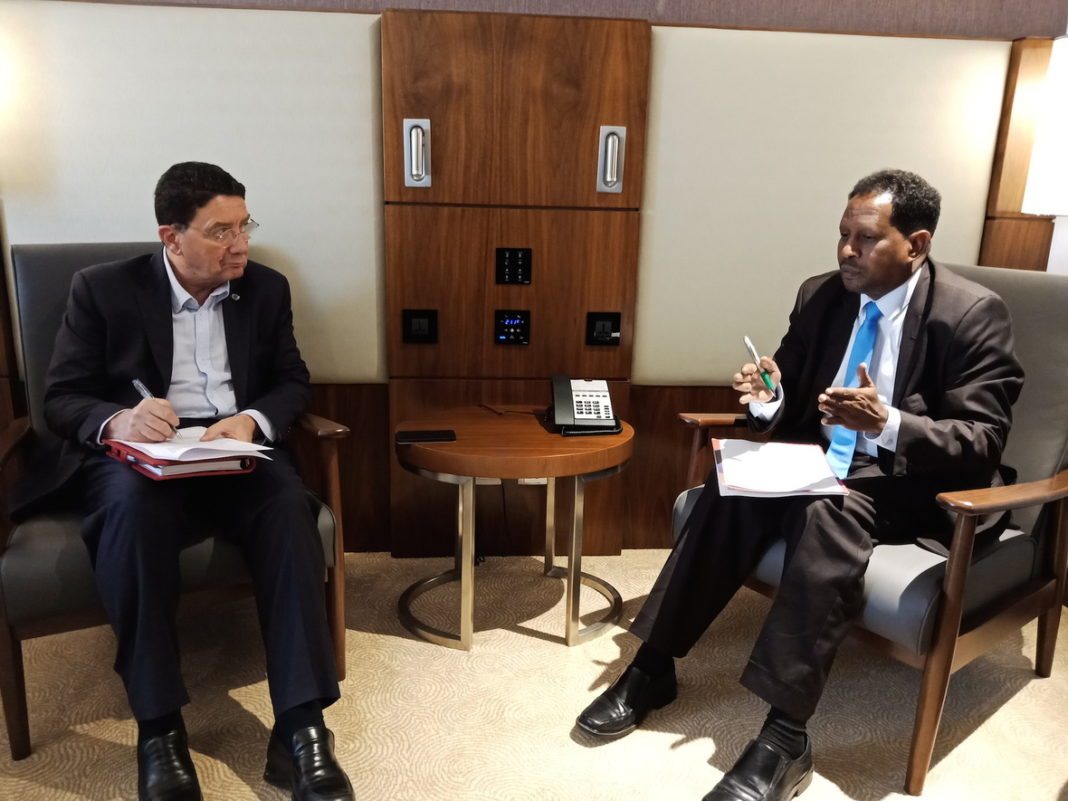
Restarting Somali Tourism: UNWTO discussion at World Conference on Tourism and Culture Oman
HE Abdirahman Omar Osman (Eng. Yarisow), the Minister of Information, Culture & Tourism of the Federal Republic of Somalia attends the Second UNWTO/UNESCO World Conference on Tourism & Culture which is taking place in Muscat, the Sultanate of Oman 11 – 12 December 2017. Minister Eng. Yarisow today met the Secretary-General of thw World Tourism Organization, Talib Rifai.
Minister Eng. Yarisow is accompanied with Mr Yasir Baffo, Advisor on Tourism. Somali Ambassador to the Sultanate of Oman HE Abdirizak Farah Ali Taano welcomed the delegation at Muscat.
The issues discussed included the conference on tourism and culture and the plans to revive Somali tourism.
Minister Eng. Yarisow stated that “Somalia is strategically located in the Horn of Africa and its people are born natural hospitable. Somalis are resilient and entrepreauners which are all assets that can quickly revive the tourism industry in the country. There are over 150 travel agencies in Somalia as well as a number of locally owned airliners that attract a number of travelers each day as the country is getting peace and stability. International flights and regional carriers flights regularly travel to Somalia such as Turkish Airline, Fly Dubai, Al-Arabia, Air Djibouti and Ethiopian Airline are all international airliners that go to Somalia.
Somalis in the Diaspora also visit the country with their families and the Ministry of Information, Culture & Tourism encourages the Diaspora to attract their friends to visit Somalia in order to experience the huge progress that the country is making every day.
Minister Eng. Yarisow concluded “Somalia has a number attractive tourism places throughout the country and the weather of Somalia is perfect for tourists throughout the year. We are here to share our plans and strategies to revive tourism in Somalia as well as learning from other countries on how they overcome the challenges that we face in Somalia.”
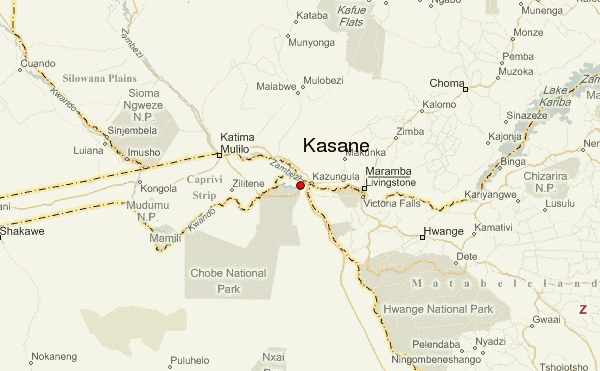
UNWTO promotes the role of media as advocates of wildlife tourism
Nearly 30 journalists have convened in Kasane, Botswana to debate the role of the media in advocating sustainable tourism and wildlife conservation as its major asset. The event is part of the UNWTO/Chimelong Program that promotes wildlife as key driver of tourism development.
International and local journalists from renowned media outlets have completed a media training workshop in Kasane, Botswana, to enhance their knowledge on sustainable tourism and wildlife and analyze the impact of their work and their contribution to the topic. The workshop is part of the activities of the UNWTO/Chimelong Program that commenced in early 2017 and that includes capacity building, training and advocacy actions on sustainable tourism and wildlife.
The training addressed the impact of wildlife tourism in the African continent, the different journalistic angles of the topic and the relevance of story-telling in reporting. Challenges such as access to information related to wildlife management, media capacities to cover technical aspects of this theme and the need to improve relations and exchanges with relevant authorities were mentioned by most of the participants.
Participants had the opportunity to propose solutions and recommendations to the difficulties they normally face to cover these topics. The creation of a network of African journalists specialized in sustainable tourism, capacity building-related activities addressing the media and regular exchanges with tourism stakeholders were some of the ideas shared by the participants.
The workshop held in Kasane is the second activity of this type in the framework of the UNWTO/Chimelong Program. The first took place in the Republic of Congo last July 2017, where nearly 20 African journalists enhanced their capacities on the multidimensional coverage of sustainable tourism.
The UNWTO/Chimelong Program results from the partnership between UNWTO and Chimelong Group to be implemented between 2017 and 2019 under the theme of sustainable tourism and wildlife protection. The initiative includes advocacy efforts to contribute to the Sustainable Development Goals (SDGs) through sustainable tourism with particular reference to wildlife conservation, to enhance capacities on sustainable tourism and wildlife conservation of both tourism authorities and the global media, to engage stakeholders from the private sector on the topic and to foster research.
Media outlets participating: BBC, Lonely Planet, Xinhua News Agency, EL PAIS, Radio France Internationale, Jeune Afrique, Radio Botswana, Botswana Gazette, Channel Africa, Africa Renewal, First Issues, The Telegraph, Botswana Guardian, Botswana Unplugged and Gabz FM.
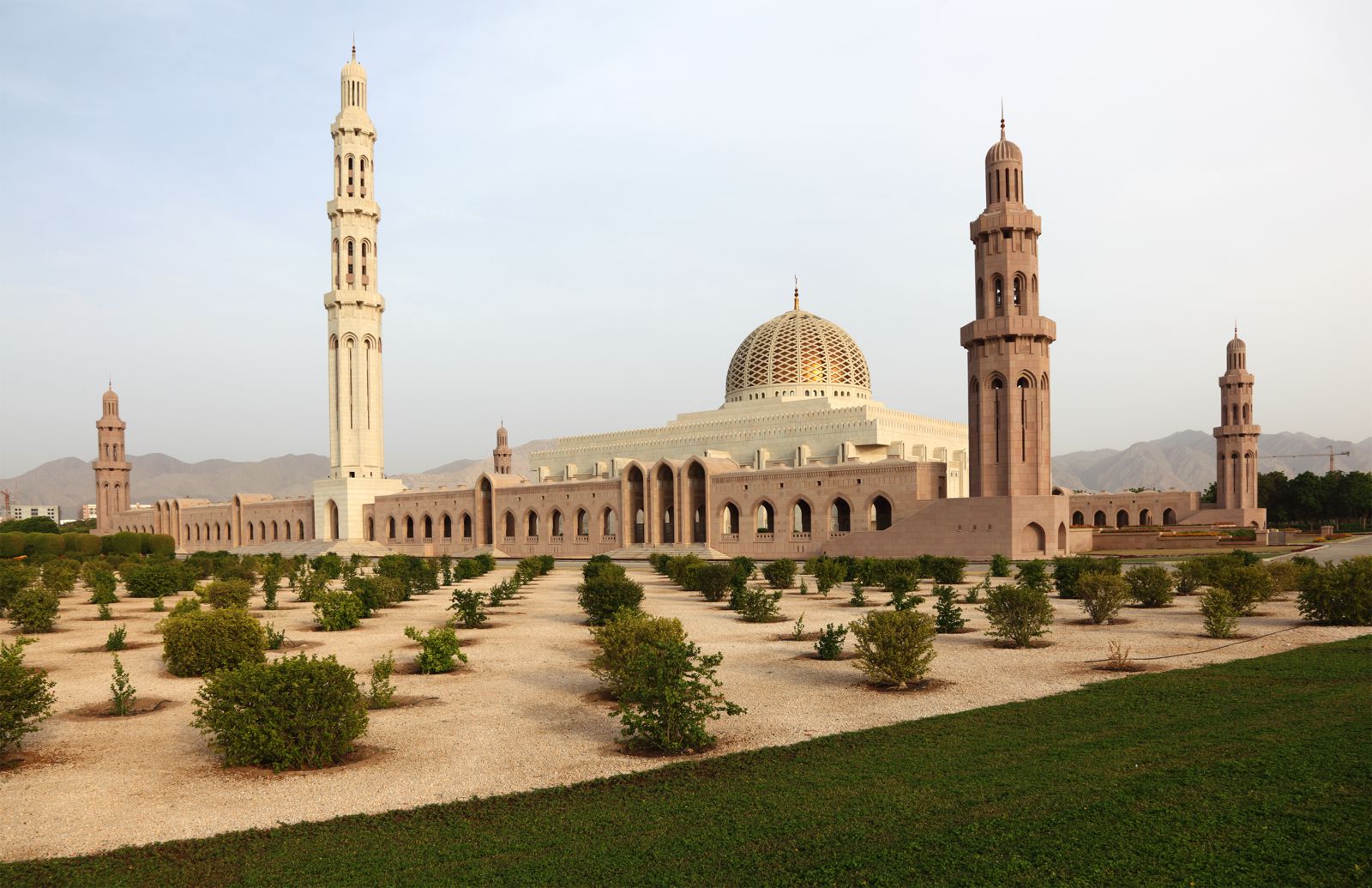
The 2nd Conference on Tourism and Culture convenes global leaders in Oman
Global tourism and culture leaders and stakeholders will convene in Muscat, capital city of the Sultanate of Oman, next 11-12 December to discuss the relation between tourism and culture. The event co-organized by UNWTO and UNESCO is held in the framework of the International Year of Sustainable Tourism for Development 2017 and follows up on the first World Conference on Tourism and Culture held in 2015, in Siem Reap, Cambodia. More than 20 Tourism and Culture Ministers have confirmed participation.
The Conference will explore ways to build and strengthen the partnerships between the Tourism and Culture sectors in the framework of the 2030 Agenda for Sustainable Development and the 17 Sustainable Development Goal (SDGs).
“Cultural tourism is growing, in popularity, in importance and in diversity embracing innovation and change. Yet, with growth comes increased responsibility, responsibility to protect our cultural and natural assets, the very foundation of our societies and our civilizations” said UNWTO Secretary-General, Taleb Rifai.
“Tourism is a key resource for local communities and for heritage preservation. Heritage, tangible and intangible, is a crucial to providing social stability and identity. Linking culture and tourism in the sustainable development process is vital if we are to achieve the Sustainable Development Goals” said UNESCO Assistant Director General for Culture, Francesco Bandarin.
Ahmed Bin Nasser Al Mahrizi, Minister of Tourism of the Sultanate of Oman highlighted that the host country will “ensure the success of the conference, convened for the purpose of exchanging experiences and ideas for achieving the sustainable tourism development.”
The first session of the Conference will be a Ministerial Dialogue on Tourism, Culture and Sustainable Development that will address the policy and governance frameworks necessary to foster sustainable development models. The promotion of cross-cultural exchanges and the safeguarding of tangible and intangible heritage will be also analyzed as a tool to enhance the contribution of Tourism and Culture to the 17 SDGs. A Special Dialogue will be dedicated to Cultural Tourism as a Factor of Peace and Prosperity.
The Conference is complemented with three round tables. The first one on ‘Tourism development and protection of cultural heritage and promoting responsible and sustainable tourism management at World Heritage sites’; the second on ‘Culture and tourism in urban development and creativity’ where encouraging innovation in cultural tourism products and services through creative industries will be tackled. The third session will explore the relevance of cultural landscapes in tourism and the integration of natural and cultural heritage philosophies and procedures for sustainable tourism development.
Some of the confirmed speakers include H.E. Ms. Eliza Jean Reid, First Lady of Iceland and H.E. Shaika Mai Bint Mohammed Al-Khalifa, President of Bahrain Authority for Culture, both Special Ambassadors for Tourism and the Sustainable Development Goals and H.R.H. Princess Dana Firas, President of Petra National Trust (PNT), Jordan & UNESCO Goodwill Ambassador.
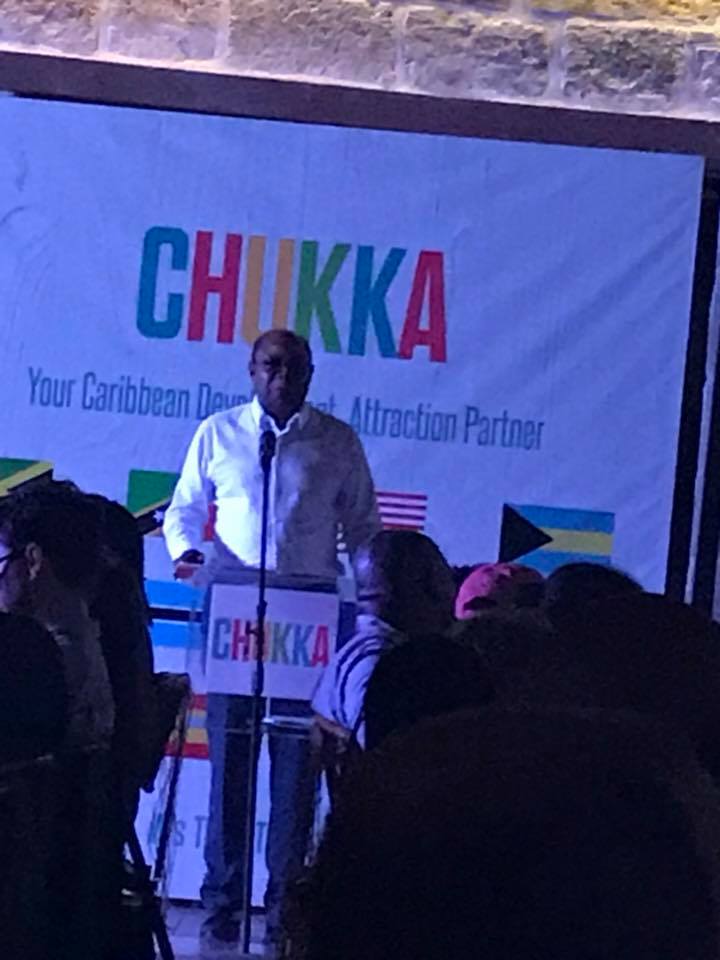
Jamaica’s Gastronomical Center will open a new tasty trend to tourism
UNWTO Conference Delegates were wined and dined last night at Chukka Caribbean Adventures in Jamaica and the host had a purpose doing it. The result after a fantastic eleven-course gourmet experience was the announcement by Jamaica’s minister of tourism Ed Bartlett to establish a gastronomical center in Jamaica. According to eTN Publisher “Excellent was an understatement.”
A gourmet experience is many times a part of a tourism experience. After this first center in the Caribbean will be established in Jamaica, tourists will be able to understand how local products make its way to the market, and how to cook a delicious Jamaican’s meal. Visitors will be able to take their church groups, their wedding groups or come alone and learn about Jamaica’s cuisine. Visitors could learn how to cook, or chefs will be ready to prepare a mouthwatering experience. Gourmet will be included in promoting Jamaica as a travel and tourism destination.
Here are some photos showing the food ane wine delegates enjoyed Thursday night.














Hello Kitty appointed as Special Ambassador of the International Year of Sustainable Tourism Development 2017
United Nations designated the year 2017 “International Year of Sustainable Tourism Development” and World Tourism Organization (UNWTO) (Headquarters in Madrid; Secretary General Dr. Taleb Rifai) plays a leading role to promote it. UNWTO and Sanrio signed an agreement that appoints Hello Kitty as Special Ambassador of the International Year.
Sanrio’s best-known character, Hello Kitty will promote the Year’s campaign “Travel. Enjoy. Respect”.
“Travelling opens our minds and our hearts, and lets us see how we are equal.” said Hello Kitty in a video inviting people to “Travel. Enjoy. Respect.” recorded especially for the IY2017.
Hello Kitty will be supporting UNWTO with its advocacy efforts in communicating the messages of the IY2017 to the broadest extent possible, as well as highlighting the role of tourism in achieving the Sustainable Development Goals (SDGs) with a global audience.
http://https://youtu.be/VJ53rSS1ghs
The video already shown at the Nartia airport, Japan, will also be published on the website and social media channels of the International Year.
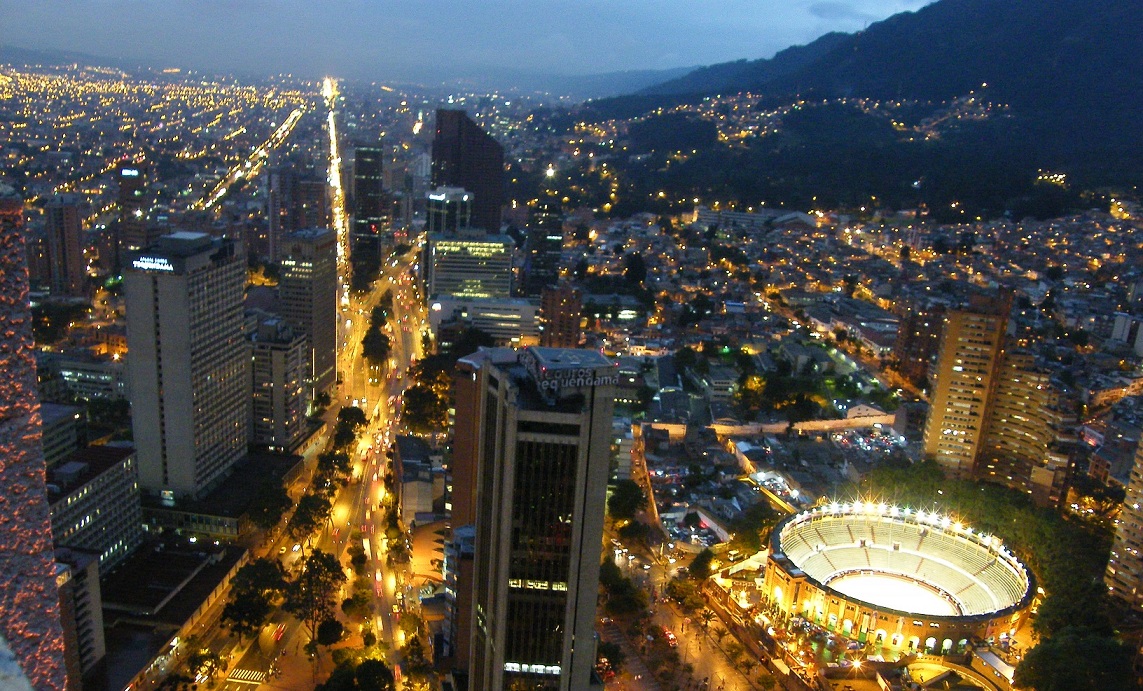
Bogotá accounts for over one fourth of Colombia’s tourism
Bogotá´s tourism GDP accounts for 2.5% of the city´s economy, a total of US$1.8bn, revealed a new report by the World Travel & Tourism Council (WTTC), Latin America City Travel & Tourism Impact. Bogotá`s tourism economy represents 29.1% of Colombia’s tourism activity.
Latin America City Travel & Tourism Impact is one of a series of reports by WTTC which looks at the contribution of Travel & Tourism to city economies and job creation. The study covers 65 cities, six of which are in Latin America.
International spend accounts for 41% of Bogotá’s tourism revenue, highlighting the importance of international visitors for the city. Most trips are for leisure rather than business purposes. The top international markets are United States (27%), Mexico (10%), Spain (5%), Brazil (5%) and Argentina (4%). Domestic demand is still responsible for 59% of tourism revenue, and spending from Colombian arrivals is forecast to double by 2026.
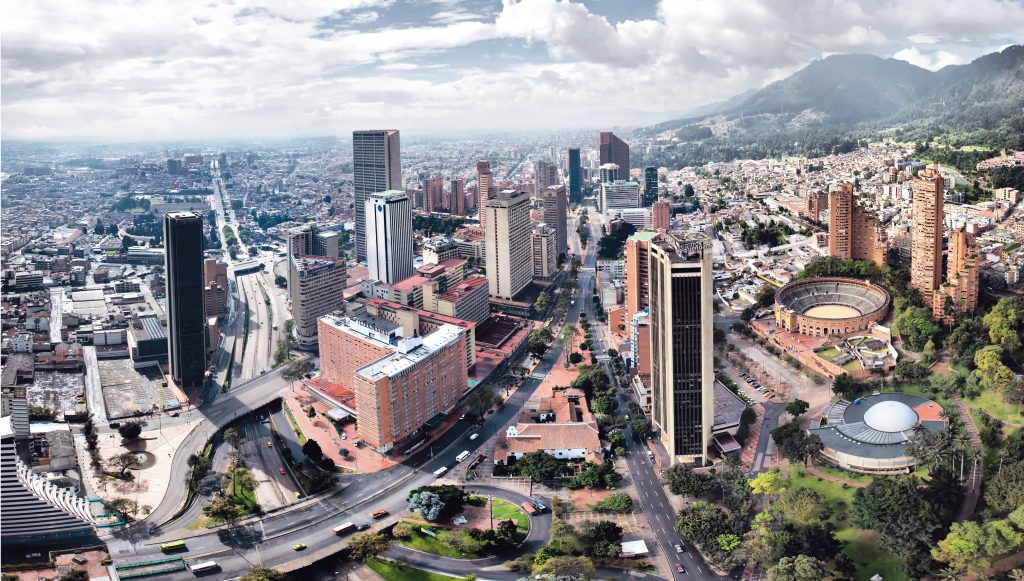
The total contribution of Colombia’s Travel & Tourism sector to GDP is COP51,05bn (US$16.7bn), or 5.8% of GDP. The total contribution of Travel & Tourism to employment, including jobs indirectly supported by the industry, was 6.1% of total employment (1.3 million jobs). Over the next ten years the sector is forecast to generate 219,500 jobs.
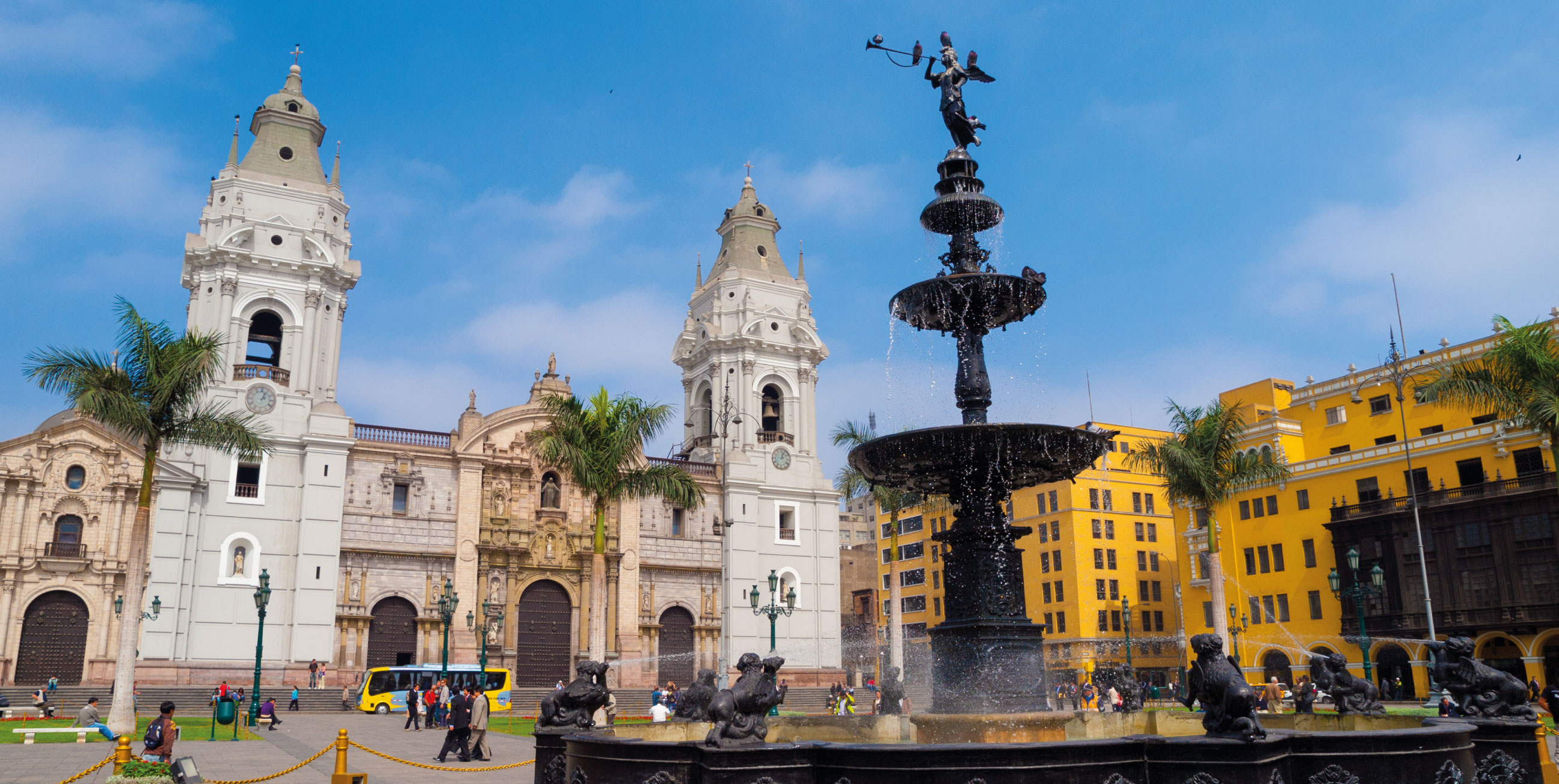
Lima accounts for over a half of Peru´s tourism
Lima accounts for 59% of Travel & Tourism GDP in Peru, as the city is a pivotal hub and gateway to the rest of the country, with 90% of visitors to Peru spending at least one night in the capital, revealed a new report by the World Travel & Tourism Council (WTTC), Latin America City Travel & Tourism Impact.
Latin America City Travel & Tourism Impact is one of a series of reports by WTTC which looks at the contribution of Travel & Tourism to city economies and job creation. The study covers 65 cities, six of which are in Latin America.
Travel & Tourism contributes 4.6% of Lima’s GDP, a total of US$4.5bn in 2016. International spend is responsible for 35.4% of tourism revenue, and the United States tops the source market list (25%), followed by Argentina (7%), Brazil (6%), Spain (5%) and Mexico (4%).
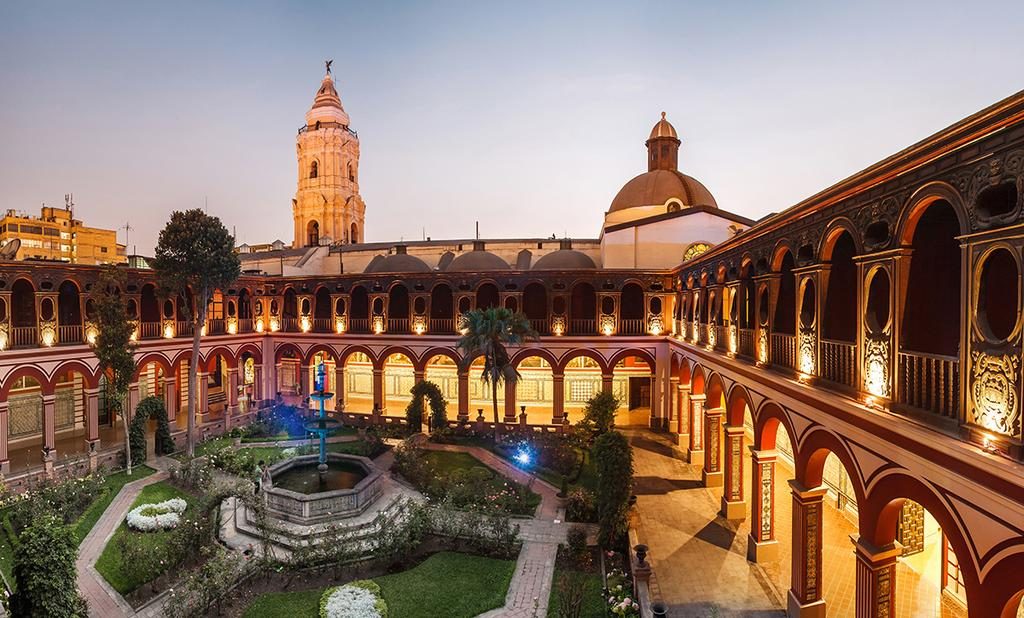
The total contribution of Peru´s Travel & Tourism to GDP was PEN66.2bn (US$19.6bn), 10.1% of GDP in 2016. The total contribution of Travel & Tourism to employment, including jobs indirectly supported by the industry, was 8.2% of total employment (1,3 million jobs). Over the next ten years, 552,000 new jobs are expected to be created through Travel & Tourism activity in Peru.
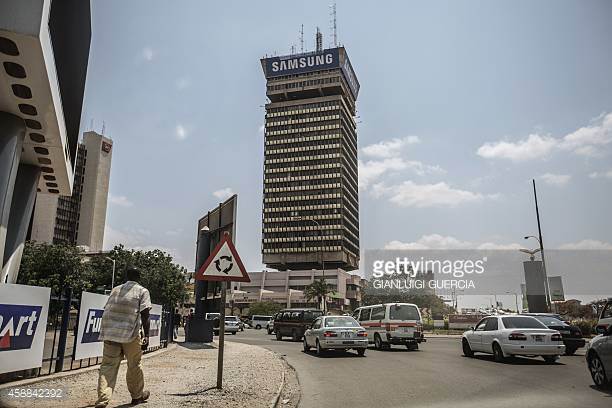
African tourism leaders debate the role of the sector as a tool for inclusive growth and community engagement
The potential of Tourism in poverty alleviation and to induce transformative change has been addressed in Lusaka, capital city of Zambia, in the World Tourism Organization (UNWTO) Conference on Promoting Sustainable Tourism, a Tool for Inclusive Growth and Community Engagement in Africa. The Conference, a flagship event of the Africa region for the celebration of the International Year of Sustainable Tourism for Development, took place last 16-18 November and was coordinated by the World Tourism Organization (UNWTO) in cooperation with the Government of Zambia.
According to UNWTO statistical data, the African continent had an increase of international arrivals of 8% in 2016, compared to the previous year. This, together with the increasing commitment of African governments to position tourism in their agenda, reveals the gaining prominence of the sector as well as its strong potential to foster positive change and transformation.
The Conference that was preceded by a technical workshop to revise strategies and approaches to develop sustainable tourism initiatives in the African continent, tackled these issues as well as the potential of sustainable tourism to lead policies to foster communities inclusion. The summit was attended by more than 200 international and local participants from Angola, Egypt, Jordan, Cabo Verde, Guinea Equatorial Kenya, Mali, Republic of Congo, Sudan, Switzerland, Spain, Union of the Comoros, Malawi, Seychelles, South Africa, Zambia and Zimbabwe.
The event commenced with a Ministerial Dialogue on Tourism, Inclusive Growth and Sustainable Development in the African continent, attended by Charles Banda, Minister of Tourism and Arts of Zambia, Ronald Chitotela, Minister of Housing and Infrastructure Development of Zambia, Taleb Rifai, UNWTO Secretary-General, Fatuma Hirsi Mohamed, Principal Secretary of the Ministry of Tourism of Kenya, Abdelgadir Dmein Hassan Undersecretary of the Ministry of Tourism, Antiquities and Wildlife of Sudan and Dorothy Tembo, Deputy Executive Director at the International Trade Center. The session was moderated by Brownyn Nielsen, Editor-in-Chief at CNBC Africa who invited the attendees to showcase sustainable tourism practices in the region and how the sector could help achieve the SDGs and generate benefits for African societies.
The framework of the Agenda 2030 and the Sustainable Development Goals were defined together with the African Union Agenda 2063 as the best scenario to foster sustainable tourism in the continent.
Precisely to this green, responsible and eco-friendly tourism was dedicated the intervention of Charles Banda, Minister of Tourism and Arts of Zambia who emphasized that “sustainability is believed to be the link between the present and the future. As patrons of the tourism sector our role is to ensure that even our children’s children experience the same nature in the form that it currently is and not in a worse off state.”
As commented by Edgar Chagwa Lungu, President of the Republic of Zambia, the International Year of Sustainable Tourism for Development is a unique opportunity to highlight the importance of the tourism sector and to promote activities to enhance the contribution of the sector for national economies. The President emphasized the capacity of tourism to contribute to local development and stated that “the Lusaka Declarationis an important milestone in the Agenda 2030 and towards achieving the Sustainable Development Goals and in the recognition of tourism as an essential development pillar.”
UNWTO Secretary-General Taleb Rifai, who congratulated Zambia for hosting the Conference as member of the UNWTO Executive Council and Chair for 2019, highlighted that the current world is facing major transformations namely the digital revolution, connecting our minds virtually and globally, the urban revolution, connecting our life style and our livelihoods and the travel revolution connecting us physically and culturally “Today, the world is at a major transformation juncture, rapid and fast change is the essence of our time. The three global forces are leading this transformation”, he added. During his visit, Rifai also declared the South Luangwa National Park of Zambia as a sustainable park.
Partnerships, technology and wildlife conservation at the core
The sessions were organized into four panels tackling Public-Private Partnership, the Role of Technology in the development of tourism, Wildlife conservation and Community Engagement and Air Connectivity in Africa.
The final outcome of the conference was the Lusaka Declaration on Promoting Sustainable Tourism Development, a Tool for Inclusive Growth and Community Engagement in Africa. The document, which places sustainability at the core of tourism development and on national and international development agendas, was adopted unanimously by all participants.
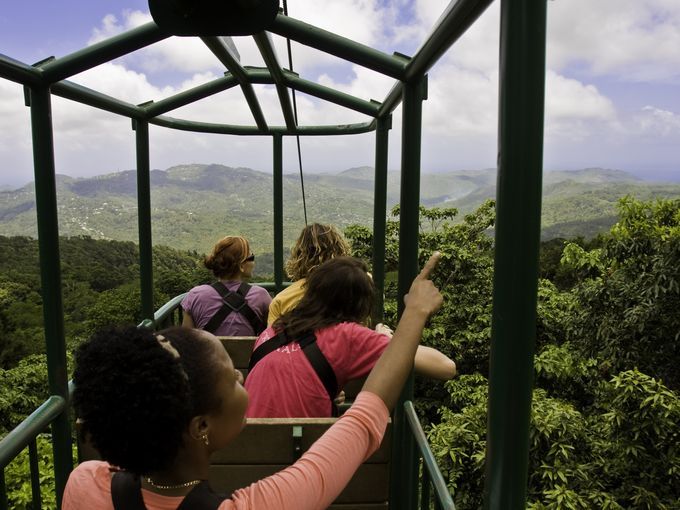
The future of tourism: Innovation challenges in the Caribbean
At the Global Conference on Jobs and Inclusive Growth ongoing at Montego Bay in Jamaica, Prof. Dr. Eduardo Fayos-Solà, Senior Adviser of the International Institute for Tourism Studies at George Washington University, shared concepts, proposals, and innovation challenges on the future of tourism in the Caribbean.
It is now more than 50 years since Thomas Kuhn published his famous work on The Structure of Scientific Revolutions and the key concepts of paradigm and paradigm shifts. Later, authors such as Joel Barker, have extended the force-concept of paradigm, from science to business and governance. A paradigm is “a framework of concepts and theories” allowing for subsequent common action in business, governance, science and technology, structured upon such framework.
In “normal times” or “business as usual,” science, business, and governance are conducted within the limits and concept of one of these “frameworks,” a “paradigm.” But “existing paradigms” face major disruptions – paradigm shifts – when the set of problems changes too rapidly, and existing methods do not work. A paradigm shift is a “game changer.” It involves a dramatic advance in methodology and practice, a major innovation in thinking and planning. It is especially true in such cases of paradigm shift that “The Future of Tourism” – or simply “The Future” – depends on innovation.
There are three kinds of innovation:
● Reforming, e.g., slightly improved products.
● Re-engineering: A new production method, with increased efficiency.
● Revolutionary (or “disruptive”): Breakthrough science, technology, marketing, or governance – entirely new products and processes, often involving dramatic new technology and satisfying previously unforeseen expectations and needs.
Even within the existing paradigm, we can have “reforming innovation” and “re-engineering innovation.” But “disruptive innovation,” and even broader “revolutionary innovation,” usually happen in the context of a “paradigm shift.” Let’s focus on “The Future of Tourism” and the 21st century key problems of: Climate Change, Development, and Governance.
Innovation (and scaling it with investment) is our bridge to the future. So, why not really go for it? Is it too risky? Are the rewards not high enough? Would this just be upsetting the apple cart? How would the region begin? By de-risking public and private institutions, as well as financial and fiscal stimuli; rewarding both the private and the public sector, and tilting the playing field (upsetting the apple cart). This may require debunking a few myths beforehand.
The problems of Climate Change, Development, and Governance are likely to require paradigm shifts in the Caribbean region, with the implication of disruptive/revolutionary innovations in: science and technology; culture, society and market mechanisms (including “marketing,” and institutional frameworks and governance. An adaptive and “successful” “Future of Tourism” in the Caribbean region requires innovation in all three areas.
As far as glocal – global and local – issues are concerned, it is well known that tourism destinations go through business life-cycles. In the Caribbean region, as elsewhere, it is important to analyze the stages in such cycles: exploration, involvement, development, consolidation, stagnation and rejuvenation, or decline. Innovation challenges vary with destination cycle stages.
In the Caribbean, it is key a quick change in framework scenarios, as well as “destination action,” with rapid adaptation/rejuvenation through all kinds of innovation, but mostly disruptive/revolutionary innovation. The exact nature and speed of the environmental, cultural, and governance changes cannot be known, so it is difficult to achieve full long-term adaptation through specific programs, projects, and reforms that are decided now. It is framework institutions, agreements, and plans which are needed.
Innovation is needed in: human capital, institutional capital, physical capital, natural capital, financial capital, and “pillars,” for example: human capital development; new partnerships, new markets, and new products; environmental sustainability; and new investments.
Environmental, scientific, technological, cultural, and social change in markets, institutions, and governance is inexorable and coming fast. The future is not what it used to be, and tourism faces a profound paradigm shift in the next few decades, so innovation is essential.
In conclusion, let us consider that it is plasticity for adaptation – rather than resilience – in our businesses, institutions, and governance, which matters, vis-à-vis “The Future of Tourism.” Knowledge management and a proper milieu (governance) for innovation is the required passport when readying to walk in the coming brave new world.
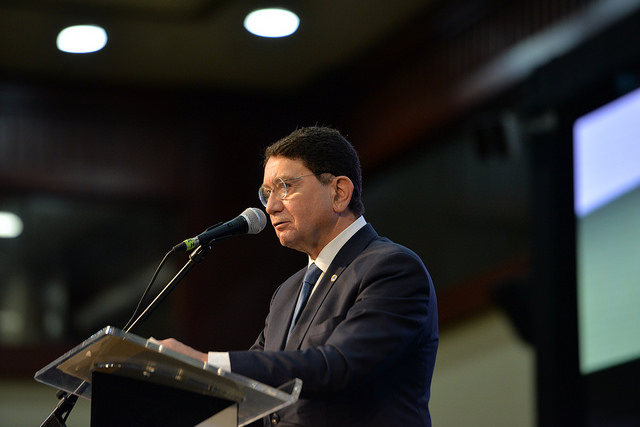
UNWTO Secretary General Taleb Rifai makes Jamaica proud
UNWTO Secretary General, Taleb Rifai told the packed audience that he felt the pride Jamaicans had for their beautiful country, when he heard the presentation of the national anthem this morning, before delivering the following remarks at the opening ceremony of the Global Conference on Jobs and Inclusive Growth: Partnerships for Sustainable Tourism:
Prime Minister, Minister Bartlett, Luis Almagro Secretary General, OAS
Dear Friends,
Good morning and welcome to our very first Global Conference on Jobs and Inclusive Growth in Tourism.
It is a pleasure to be here and to have Jamaica as our generous host, a country that has long been an important partner to UNWTO and the global tourism and development communities.
Particular thanks to the Special Ambassadors of the International Year of Sustainable Tourism for Development 2017, Dr. Michael Frenzel is here today representing them, to all our official sponsors and partners, namely those who join us today, All Nippon Airways, Hilton, PR MediaCo, Ras Al Khaimah, and the Government of Colombia (thank you for coming Sandra).
All of you have made this year possible.
Allow me also to thank the World Bank and the Inter-American Development Bank for partnering with UNWTO and Jamaica in organizing this Conference as well as Chemonics, WTTC, the George Washington University, the Caribbean Tourism Organization and Caribbean Hotel and Tourism Association for their great support to the Conference.
Dear Friends
At the outset of our gathering allow me to express our deepest and most sincere support to all the countries in this region affected by the devastating hurricane Irma.
We are here to show you our full support and walk with you through recovery.
Dear Friends,
Against all odds and despite all challenges, travel and tourism continues to grow as one of the leading socio-economic sectors in the world today.
In 2016, 1235 million travelers crossed international borders, in one year.
That is almost 1/6 of the people of the world making an international trip every year.
2016 was the seventh consecutive year in a row of above average economic growth.
This year, 2017, is no different, as global growth between January and August continues even stronger at +7%.
Tourism is:
Generating US$3.2 billion of spending every day globally
Creating 1/10 jobs all over the world
Representing 10% of world GDP
Constituting 30% of world trade in services,
Travel and tourism is today the 3rd largest export industry in the world after chemicals and fuels.
UNWTO’s long-term forecasts show that by 2030, the 1.2 billion of today will be 1.8 billion.
Beyond the numbers and the economic benefits, tourism is today bringing us together like never before.
Together with other forces of globalization, travel and tourism is making the new world smaller, more connected and more informed, and therefore, more involved, more concerned and a more caring world, a better world indeed.
Travel and tourism is today contributing to breaking down barriers and stereotypes, enabling us to experience, enjoy and celebrate the beauty of our rich cultural diversity.
Mark Twain summed it up pretty well when he said “travel is fatal to prejudice, bigotry, and narrow-mindedness, and many of our people need it sorely on these accounts.”
Travel, dear friends, opens minds, opens eyes and opens hearts.
We become better people when we travel.
Dear Friends,
With growth, however, comes power, and, with power, comes responsibility – with 1.8 billion travelers, we could end up with 1.8 billion opportunities, or 1.8 billion disasters – it’s all up to us.
How we manage this impressive growth is in our hands.
We need to ensure that the 1.8 billion travelers, can and should, when well-managed, translate into:
Opportunities for inclusive economic growth
Opportunities for more and better jobs, decent jobs
Opportunities to distribute wealth and share prosperity
Opportunities to better know and respect each other
Opportunities to protect our natural and cultural heritage
In short, growth, inclusion and progress are our means to achieve
sustainable development.
Because sustainability, my friends, is to sustain LIFE on earth.
Not just to preserve its natural and cultural assets and the foundations of who we are, where we live,
and, how we live (in today’s context, how and where we work) but, to do so, and in the process, elevate LIFE on earth to a higher level of progress and quality for all the people.
BECAUSE
It’s really all about people – they are at the center of all challenges
Growth and sustainability,
Progress and sustainability, should go hand in hand, not either – or, but a win-win equation.
Dear Friends,
In 2015, the international community accomplished three important milestones,
– The 17 SDGs, a roadmap to 2030 (UNGA)
– The Paris agreement on climate change (UNFCCC)
– Dedicate 2017 as “The international year of sustainable tourism for development” (UNGA)
2017 is, therefore, a very special year for us, in the travel and tourism industry, and a unique opportunity for all of us to come together to promote the contributions of travel and tourism, as a grand 21 c human activity, to shape a better future for people and planet.
The question today remains, how can we use this unique opportunity of the IY 2017, to ignite and enable this transformative force, called Travel & Tourism, to contribute to all 17 SDGs, our agenda for 2030? To contribute to making this world a better place?
Dear friends,
I am certain that part of the answer lies in strong, effective and transparent partnerships.
In today’s globalized world, every challenge is a global challenge.
Strong collaboration and decisive action is required to surmount these global challenges.
And such a global challenge, as ensuring sustainable growth for years to come, calls for common goals – effective global partnerships, and stronger financing for development with means which reflect the real potential of tourism to make this world a better place.
That is the message that we are giving loud and clear this week.
Dear Friends,
This conference is a unique opportunity to deliver on a new framework for global partnership for sustainable development through tourism.
An opportunity to create a new roadmap to make tourism an effective path to a better future for all people, leaving no one behind.
As we do so, lets us always remember our motto for this year
TRAVEL
ENJOY
RESPECT (RESPECT NATURE; CULTURE AND THE OTHER)
Thank you.
